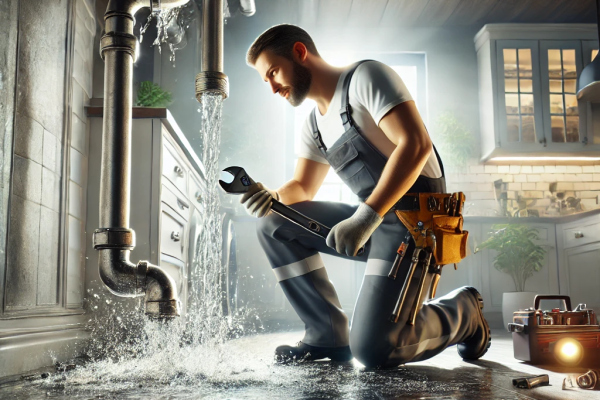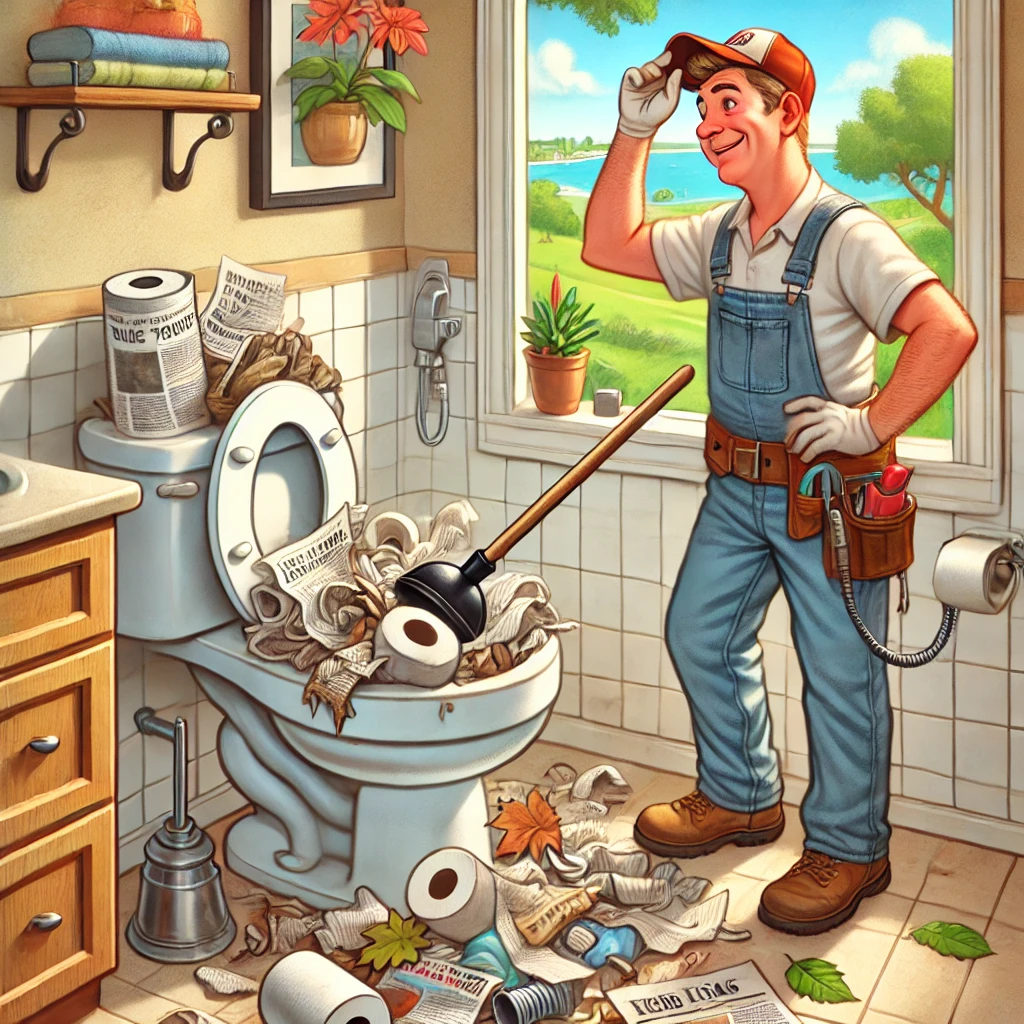
How a Licensed Plumber Can Save Your Home from Disaster
It’s hard to imagine anything worse than coming home to find a giant puddle on the floor from a burst pipe or a leaky water heater. These problems always seem to happen at the most inconvenient times—like when you’re rushing to work or expecting guests. But there’s one straightforward way to reduce the likelihood of such catastrophes: entrust your plumbing only to licensed professionals. In this article, we’ll explore why this is crucial, how to distinguish a true professional from a “garage handyman,” and the benefits of hiring a licensed plumber. We’ll also delve into why licensing is especially vital in Texas.
A License Is More Than a Piece of Paper
The Assurance of Quality
A license isn’t just a piece of paper; it’s proof that a plumber has completed specialized training, passed rigorous exams, and is prepared to take responsibility for the quality of their work. Licensing requirements vary by region, but generally, they include mastery of plumbing techniques, building codes, and safety regulations. In Texas, plumbers must meet strict criteria, including professional experience and passing tests on local construction standards.
Why Licensing Matters
Construction and renovation are governed by specific laws and guidelines. Licensed plumbers follow these standards, ensuring that your home’s systems—from water supply to wastewater disposal—meet safety and reliability benchmarks. This compliance prevents issues like leaks, electrical hazards, and future costly repairs.
The Risks of Hiring Unlicensed Plumbers
Short-Term Savings, Long-Term Costs
Many people try to save money by hiring unlicensed “jack-of-all-trades” individuals. While this might seem cost-effective initially, it often leads to significant problems:
- No Guarantees: If the work is poorly done, unlicensed plumbers often disappear, leaving you to bear the cost of repairs.
- Safety Violations: Unlicensed work may ignore building codes, causing leaks, flooding, or even electrical damage.
- Insurance Issues: Homeowner insurance policies often require compliance with building codes. If an unlicensed plumber’s work fails to meet these standards, your claim may be denied.
The Benefits of Hiring a Licensed Plumber
Why It’s Worth the Investment
At first glance, hiring a licensed plumber may seem more expensive, but the long-term advantages far outweigh the initial cost:
- Reliability: Licensed plumbers are accountable for their work, ensuring quality outcomes.
- Certified Materials: They use high-quality tools and components from reputable suppliers.
- Time Efficiency: Professionals diagnose and fix issues faster, saving you time and stress.
- Safety: Licensed work adheres to regulations, reducing the risk of accidents and disputes.
Real-Life Example: One Leak, Many Problems
Imagine a pipe bursts inside your wall. At first, it seems manageable, but delays in repairs lead to water seeping into a neighbor’s unit, damaging ceilings, and escalating costs. A licensed plumber addresses such issues promptly and correctly, preventing additional expenses and complications.
Why Texas Takes Licensing Seriously
Unique Challenges in Texas
In Texas, vast properties and independent utilities demand precision. Mistakes in laying pipes can lead to ground moisture damaging foundations, resulting in costly renovations. Texas’ strict licensing requirements—including extensive training and adherence to safety rules—ensure that plumbers deliver top-quality service.
Identifying a Licensed Plumber
Texas makes it easy to verify a plumber’s credentials. Check for a valid license through official state resources and review their experience and customer feedback.
When to Call a Licensed Plumber
Certain situations demand the expertise of a licensed professional:
- Major Renovations: Replacing pipes or installing new systems requires professional oversight.
- Complex Equipment Installation: Setting up water heaters, boilers, or filtration systems demands specialized knowledge.
- Inspections: A professional diagnosis can uncover hidden issues.
- Home Purchases: Before buying a property, a plumbing inspection can prevent unwelcome surprises.
How to Verify a Plumber’s License
- Ask for Their License Number: In Texas, this can be checked online.
- Review Online Presence: Reputable plumbers often display their credentials on their website or social media.
- Check Reviews: Customer feedback provides insights into service quality.
Practical Tips for Choosing the Right Plumber
- Seek Recommendations: Ask friends and neighbors for trusted professionals.
- Interview Candidates: Learn about their training, experience, and past projects.
- Compare Options: Review multiple candidates to find the best fit.
- Request Warranties: A refusal to provide guarantees is a red flag.
Don’t Skimp on Safety
Plumbing is not the place to cut corners. Licensed plumbers offer accountability, use quality materials, and ensure work complies with building codes. This minimizes risks and protects your home and finances.
Conclusion: Invest in Quality
To avoid turning minor plumbing issues into major disasters, hire a licensed professional. Especially in Texas, strict licensing standards are a mark of quality, ensuring reliable and safe services. Choose licensed specialists to safeguard your home, and enjoy peace of mind knowing your plumbing is in capable hands.






